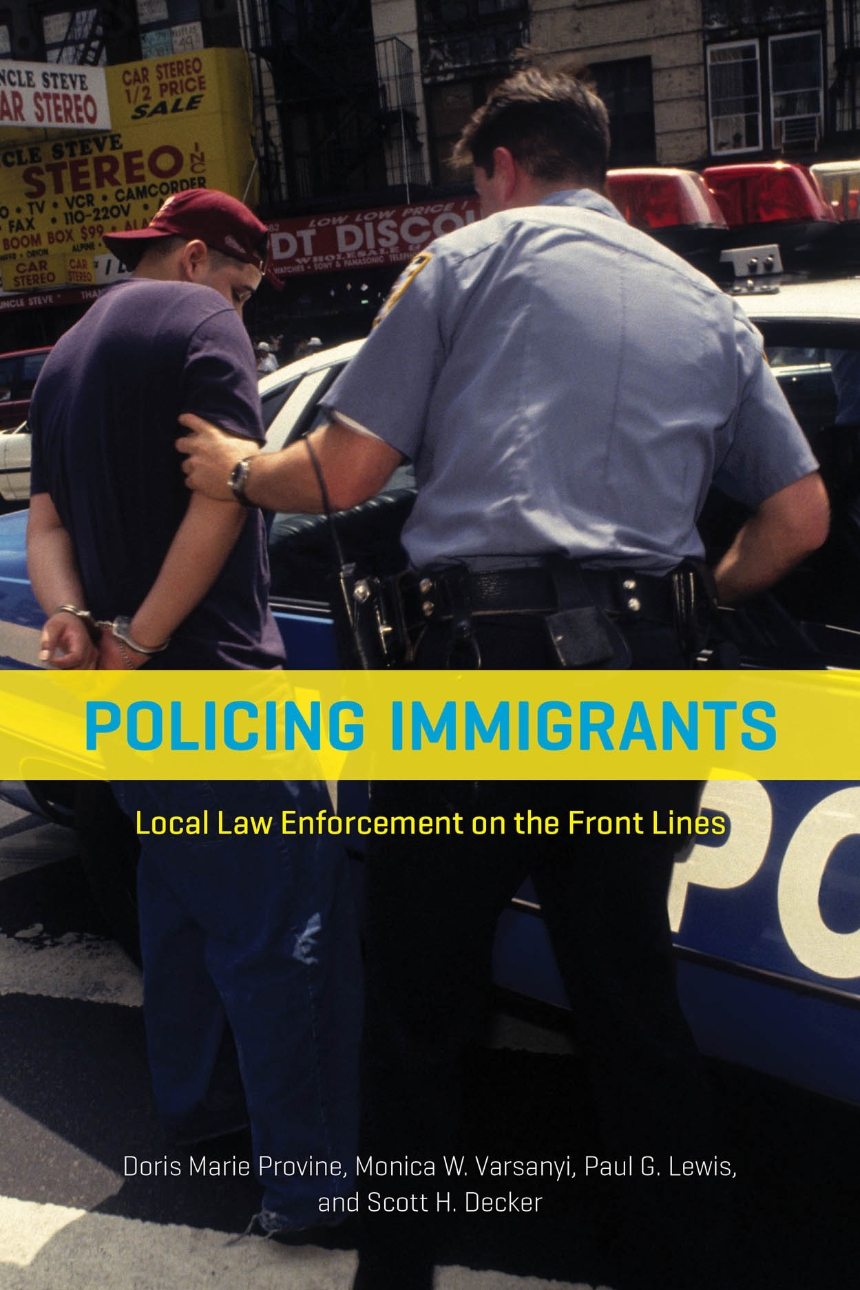Policing Immigrants
Local Law Enforcement on the Front Lines
Policing Immigrants traces the transition of immigration enforcement from a traditionally federal power exercised primarily near the US borders to a patchwork system of local policing that extends throughout the country’s interior. Since federal authorities set local law enforcement to the task of bringing suspected illegal immigrants to the federal government’s attention, local responses have varied. While some localities have resisted the work, others have aggressively sought out unauthorized immigrants, often seeking to further their own objectives by putting their own stamp on immigration policing. Tellingly, how a community responds can best be predicted not by conditions like crime rates or the state of the local economy but rather by the level of conservatism among local voters. What has resulted, the authors argue, is a system that is neither just nor effective—one that threatens the core crime-fighting mission of policing by promoting racial profiling, creating fear in immigrant communities, and undermining the critical community-based function of local policing.
Read the first chapter.
208 pages | 8 maps, 4 figures, 13 tables | 6 x 9 | © 2016
Chicago Series in Law and Society
Law and Legal Studies: Law and Society
Political Science: Public Policy, Race and Politics
Sociology: Race, Ethnic, and Minority Relations
Reviews
Table of Contents
1. Introducing the Conflicted Politics of Localized Immigration Control
2. The Evolution of Devolution
3. The Problematic Patchwork of Immigration Federalism
4. Going Their Own Way: Community Context and Its Influences on the Patchwork
5. Discretion on the Front Lines: Immigrant Policing in Action
6. Negotiated Understandings between Law Enforcement and Local Communities
7. Conclusions and Recommendations: Finding the Way Forward
Appendix: Multivariate Analyses of Policing Practices and Local Government Policies
Notes
Index
Awards
Choice Magazine: CHOICE Outstanding Academic Title Awards
Won
American Society of Criminology, Division of Policing: Outstanding Book on Policing Award
Won
